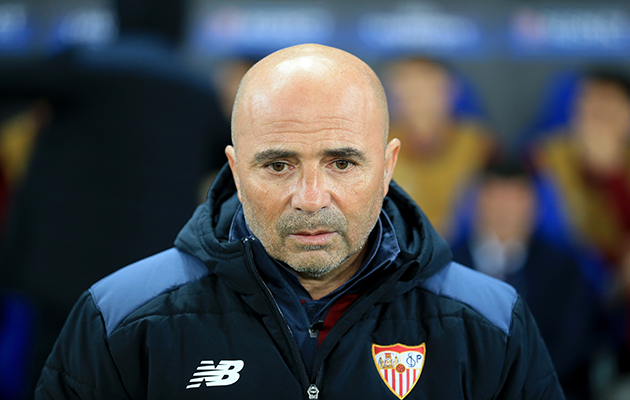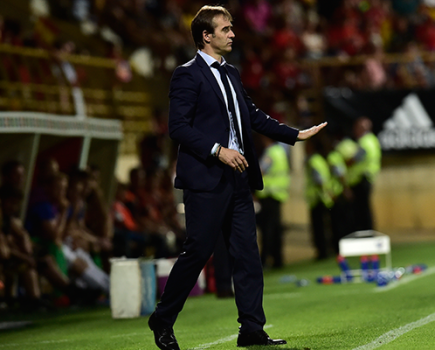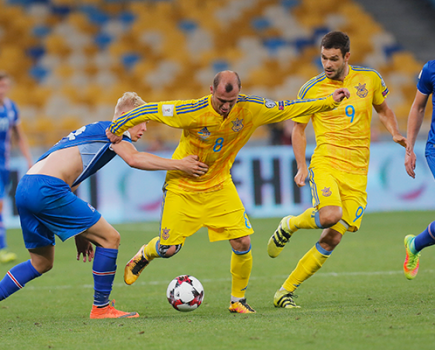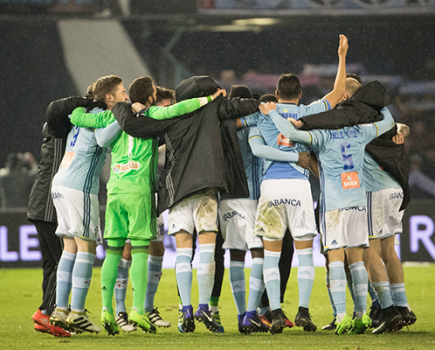We should have scored four or five, put them out of sight”. Sevilla knew that they had made a mess of it, even after the first leg. By the end of the second, they knew just how much damage had been done. The chance to make history had gone. For the third time, they fell at the same stage of the Champions League competition – and, again, it was against an opponent that they were favourites to beat. An opponent they had dominated at the Pizjuán. “Spanish treble,” ran the proud headline on the front of one sports daily, but they knew that it could, and probably should, have been four.
Bad luck, bad finishing and very bad penalties were blamed. Sevilla had two saved two over the two legs: Jovetic at the Pizjuán and N’Zonzi at the Kind Power, a weak effort easily stopped. “That was the key,” Sampaoli said, “the men who should have taken it were not on the pitch.” But who were they?
Questions were asked. Jorge Sampaoli has been hugely popular this season, making Sevilla one of the most exciting teams in Spain, but doubts emerged now. About their physical condition, their recent drop in form, the way that they were pushed out of the game. And, then there was this: how can it be that they do not have a penalty taker? How can it be that four different players have taken their last four penalties … and all four of them have missed? How can it be that six men have missed penalties this season?

Samir Nasri (3rd left) marches off after being shown the red card.
Then there was Sami Nasri, of course. Sent off, fingers pointed his way. Here was a glimpse of the ‘other’ Nasri, the one they hadn’t seen this season. He had dipped over the last month but his start to the season had been sensational.
Up until Christmas, he played and made others play, allowing the team to “breathe” in Sampaoli’s words. He had set a competition record for completed passes in Zagreb and his recovery for this game was considered key: he had been left out lately to get him ready for this. He will be decisive, Sampaoli had said. He hadn’t imagined that it would be like this.

Diego Simeone patrols the touchline during Atletico Madrid’s 0-0 draw with Bayer Leverkusen.
Four years in a row now Atlético Madrid have made it into the quarter-final of the Champions League. Which is impressive anyway, and would be for any team, but even more so when you think where they came from; the very fact that it seems normal now makes it all the more remarkable. Ok, so the Diego Simeone has changed Atletico for ever line has been heard over and over, but … well, Diego Simeone has hanged Atletico for ever.
There is just one thing that he hasn’t yet been able to change, not entirely.
Under Simeone, they have won the Copa del Rey, beating Real Madrid in the final at the Santiago Bernabéu – their first win over their city rivals in fourteen years. They did the impossible and won the Spanish league title, the first team to do that outside of Madrid and Barcelona for a decade, clinching the trophy against Barcelona at the Camp Nou. They have won as many leagues in the last eight years as Madrid. And of course, they reached the European Cup final for the first time in almost half a century and only the second time ever. And then, two years later, they reached another one.
Then they lost them both, to Real Madrid. And cruelly. The jinx hadn’t been broken entirely. Over the last three years only one team has been able to knock them out of the Champions League: Real Madrid. So now, here they are again, having defeated Bayer Leverkusen 4-2 on aggregate. The question is: do they desperately want Real Madrid, a chance of revenge, or do they desperately not want Real Madrid?
“No”, Tayfun said. He had been asked a simple question – had he ever seen anything like the triple save that Jan Oblak had produced – and he gave an even simpler answer. That was the moment of a second leg which, while reasonably entertaining, was a non-event at the Calderón. Atlético went through 4-2 on aggregate, all of them scored three weeks earlier. There were no goals in the return. There wasn’t even the chance to see Fernando Torres – and that might prove more significant than it first appears.
https://www.youtube.com/watch?v=Zl4JoAqV_So
Torres was back in the squad for the first time since suffering that scary head injury at Riazor, when he was unconscious for two minutes and rushed to hospital, where team-mates dashed to his side and many feared the worst. He went out to warm up early in the second half of a game that mattered little, with qualification secured, a game that had been set up as being all about his return. It is hard to do justice to just how much of an idol he is at the Calderón.
When he set off to warm up at the start of the second half, there was a huge cheer. When he headed back to the bench at the end of the game, there was a kind of stunned silence, disappointment. It finished 0-0, Atletico were never in danger, they didn’t use all their subs, and yet still Simeone didn’t put him on. He is entitled to make the changes he wants of course, but still it jarred. Strangely unsentimental. Or, some asked, was it sentimental – just not in the way they imagined? Was there something behind it? Speculative? Perhaps, but some were genuinely upset. This one will run, that’s for sure. “We would have liked to have seen Torres on,” Griezmann said, speaking for just about everyone.







